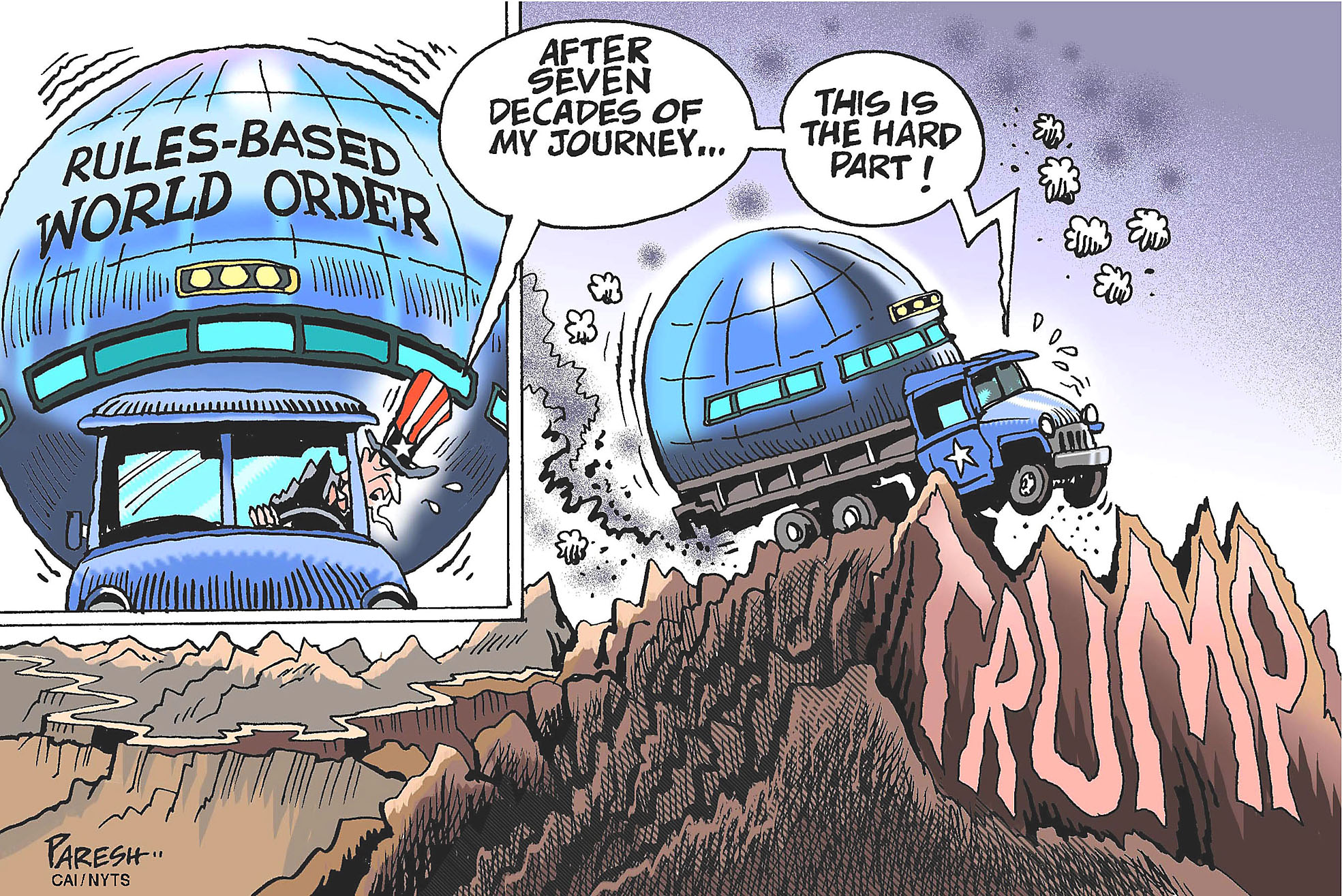We have evidence gained over a long period that free trade brings great benefits to the economy as a whole. Today, however, we are witnessing an escalation of protectionist policies that defy such evidence.
In March, the administration of U.S. President Donald Trump announced it was imposing tariffs of up to 25 percent on steel and aluminum imports to the United States (with some exceptions). Several countries and regions, including China, have taken retaliatory steps against the U.S. action. The U.S. in turn took such steps by its trading partners to the World Trade Organization, alleging they violate WTO rules. The U.S. action has developed into a tit-for-tat exchange of retaliatory measures.
The Trump administration is trying to build up a "political" episode in order to win votes among Americans unhappy with the status quo — by showing that he is different from any of his predecessors. Such moves will only intensify as the U.S. midterm elections in November draw near. The U.S. and China are the world's largest and second-largest powers in terms of GDP and military strength. A trade war between such major powers will be a disturbance not just between the two countries but to the whole world.



